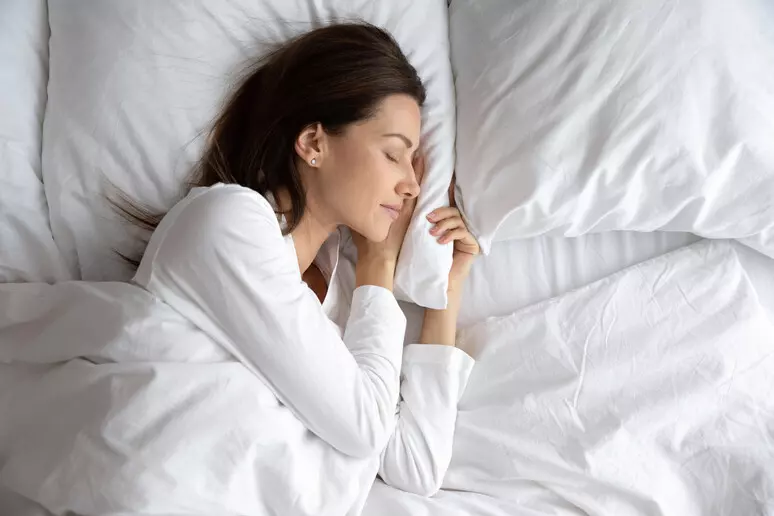Prince Hamlet wanted “to sleep, perchance to dream” as a solution to the existential troubles that tormented him. We, on the other hand, look enviously at the teenagers in our lives who are able to sleep until midday. One thing is certain: lack of sleep is really bad for you. And yet, here we are—brains that won’t shut off, anxiety, small children and work, or too many things to do, or all of the above. And for those who are aging, circadian rhythms destroyed by decades of disruptions. We are living through a true “global sleep crisis,” according to the Global Sleep Survey 2025.
March 14 marks World Sleep Day, a celebration of a precious and increasingly rare commodity. According to an April 2024 Gallup poll, 57% of Americans say they would feel better if they got more sleep; only 42% believe they sleep enough. Sleep quality has declined: in 1942, 59% of Americans reported sleeping eight or more hours per night, whereas today, only 25% do. In 1942, only 3% slept five hours or less—now, that number has jumped to 20%. Breaking down the data, women fare worse: only 36% of American women say they get enough sleep, compared to 48% of men.
Things are no better in Italy. According to a 2019 study by the country’s Superior Institute of Health (Italian National Institute of Health), nearly one in three Italians slept an insufficient number of hours (six or fewer), and one in seven reported poor sleep quality (frequent awakenings, bad dreams). Sleep disorders in Italy are more common among the elderly, those with lower education levels, and lower-income groups. But again, women have it worse, reporting poorer sleep quality than men. Smokers also sleep worse, both compared to those who have quit and those who have never smoked. If it’s any consolation, in Italian households married couples sleep better, and—surprisingly—parents of children under 14 sleep better, too.
The latest findings from the Global Sleep Survey 2025, reported by GlobeNewsWire, surveyed over 30,000 people across 12 countries. One in three people says they regularly sleep well fewer than four nights a week.
The main causes of insomnia are:
- Stress (57%)
- Anxiety (46%)
- Financial and economic problems (31%)
In 2024, over half of respondents reported using a digital device before bed—scrolling through social media, watching TV, or reading the news. More than 3 in 10 reported waking up multiple times during the night.
Another major sleep disruptor for women is menopause or perimenopause—44% of those in this stage experience sleep disturbances. And that’s not even considering that this is often the life stage where, while children may still be needing attention, elderly parents also begin requiring care—responsibilities that typically fall on women.
It’s clear that our fast-paced, overstimulating society keeps us far from an ideal balance, and a vacation isn’t enough to fix it. The only solution is to follow the common-sense advice we all know but find so hard to implement:
- Get sunlight to help regulate your circadian rhythm
- Avoid long naps during the day
- Sleep in a cool, dark room (no lights, no radiators on)
- Avoid caffeine and alcohol, especially in the evening
- Leave your smartphone in another room (raise your hand if you can actually do this!)
- Go to bed at the same time every night, at least two hours after dinner
- And finally, the icing on the cake: reduce stress. But how? There’s no universal solution—try what works for you: meditation, yoga, running, creating a relaxing bedtime routine (warm bath, herbal tea, a book). Serious problems won’t magically disappear, but obsessive thoughts can—at least to some extent—be managed.
And if all else fails, over-the-counter supplements are worth a try, and a doctor may be able to help— better to take a prescribed medication than to lose hours of sleep. Sleep deprivation wreaks havoc on the body: according to the Global Sleep Survey 2025, more than half (51%) of respondents experience excessive daytime sleepiness, 48% feel negative emotions in the morning, and 36% report increased irritability. Other common effects include morning headaches (32%) and difficulty concentrating (31%). More than 7 in 10 workers have taken at least one sick day in their career due to insomnia.
“The disruption of regular sleep cycles, which should repeat consistently each night, results in discomfort, reduced cognitive and physical performance, and actual depletion of neurons in brain areas linked to memory and learning. Lack of proper sleep in school-aged children is responsible for many learning difficulties,” says endocrinologist Simonetta Marucci.
Let us sleep.












